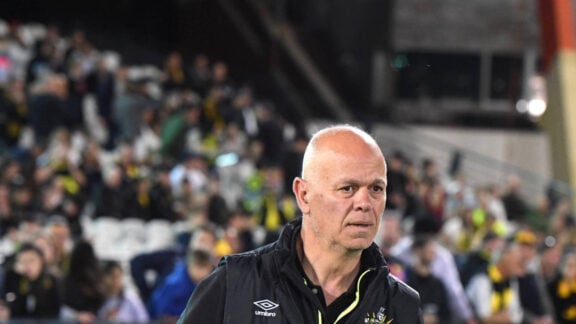I visited Psara which has a history that dates back to the Mycenaeans for the commemoration of the tragic slaughter of locals in 1824.
Some people are aware of my human rights compassion. What they won’t know is that growing up I was not fond of Turks. It took the compassion of my own parents for our neighbours, and all the wonderful Turkish people I met at university, and then working on community development at Auburn Council to understand how much we have in common. Auburn is Little Turkey in Sydney. The community looked after me, developed friendships, which made me engage further and visit Turkey many times. I have heritage from Asia Minor….

This is my context for Psara. I respect our neighbours, dislike Erdogan, especially the illegal occupation of Northern Cyprus and the imprisonment of Ekrem İmamoğlu. It doesn’t mean I forget our past. It’s something we need to be mindful of as we respect our ancestors, yet we need to engage the ancestors of those who committed brutality in places such as Psara. Neighbouring Chios was also targeted and the entire population almost all of whom were wiped out by Ottoman soldiers in 1822.
Psara, as I discovered last week is small, sitting alongside anti-Psara where just four people reside. The main island supposedly took its name over 3,000 years ago which was meant to signify it was a “poor” island, Psyra. A depopulation after the fall of Constantinople in 1453, islanders chose to live on the bigger Chios. Psaros’s descendants returned by the 1600s. This ushered in an era of prosperity as its relative seclusion led to the development of a merchant fleet.

By the early 1800s, Psara boasted the third biggest Greek fleet. Locals successfully fought off pirates and while forced to provide up to 75 sailors annually for the Ottoman fleet, this became an advantage as the islanders honed their naval skills. Psara ships raided the Anatolian coastline invading Ottoman towns and taking back booty. Naturally this enraged the Sultan, placing the island on a “revenge” list which would eventually come in June 1824.
Psara ships were part of the first naval engagements for the Greeks, at Lesvos. The success of the islanders gave many Greeks confidence. Some of the great names and arguably the greatest was Admiral Konstantinos Kanaris. He, along with others are adorned in murals and statues on the island. Kanaris would go on to become Greek PM on five occasions.

Kanaris took out the Albanian Nasuhzade Ali Pasha, second in charge of the Ottoman fleet who was one of those involved with the Chios massacre. All Church services and speeches honoured the great man, a point reiterated by the Mayor when I spoke with him.

Psara, which today constitutes 400 people, mostly engaged in seafaring on a small scale and fishing, their economic driver. Tourism is beginning to develop with a small number of hotels and rooms, yet it was a big mission to book a room. I managed to snag a room at the picturesque Hotel 1801 which overlooks the town. As Antonis, the owner mentioned, it’s like a peaceful monastery, a gateway to the Aegean. The owner was a sailor from Athens who fell in love with the island and moved there in 2019.

The deputy mayor, a young man named Manolis Marinos, tells me they are looking at developing tourism. Marinos is a software engineer who lived in Athens for 20 years before returning during the Covid era.
The Regional Vice Governor, Pantelis Bournias, raised in New York told Neos Kosmos how important the island is to Greek history. Bournias emphasised how the island is adapting to the times but will always honour its fallen heroes.

The Panigyri festival held on the Saturday, saw the island rejoice in liberty and fallen heroes. Some impassioned talks, dance performances, a re-creation of 1824 by a young woman ably supported by dozens of children with lit candles and fireworks. As George Maris, who has a pharmacy at Chios Town, told me, the entire island came out for the event. They were augmented by military officers and soldiers including from Chios and members of the Greek Orthodox Church including the Metropolitan of Chios, as well as the MPs representing Psara and Chios. The Mayor of Psara, Konstantinos Vratsanos was the first to address the crowd, providing an overview of the history and why we remember Psara. The theme was reinforced by students reading poetry and Greek dancing by young people.

Youth are an important factor there, as a former sailor who visited Australia and businessman, another George told me, we need to find ways to keep them here. This is a theme for many an island.

What happened in 1824?
It was a “Freedom or Death” moment. The islanders were besieged at the fort of Palaiokastro/Mavri Rach. My room stared directly at the fort. The besieged threw a flag with the words Freedom or Death at the Ottomans. The patriotic slogan adorns island flags. The population at the time was 7500 augmented by 23,000 Greek refugees. An islander, Antonis Vratsanos, lit the local gunpowder killing a good number of the people in the fortress rather than surrender. One can wonder if that gunpowder could have been used against the enemy. The Ottomans then killed many of the survivors and sold off others to slavery, similar to what happened in Chios.

My own pappou Vasilis of Aivali had a similar story last century. While he died a broken man when my father was just ten years old on Lesvos, we have always forgiven our neighbours. We want lasting peace and friendship.
The island of Psara too, just like me, will always honour those who fell tragically and heartbreakingly.

As the world teeters on the brink, we must look at everyone as human beings, learn lessons from the past. A peaceful pathway is what is needed. In the 1820s our pathway was for liberty, as many freedom fighters seek, yet we all remain on the same planet and must strive for peace, no matter who we are. If possible, friendship too. At the same time honour our ancestors as Psara honourably achieved.

Psara also hosted a packed free concert of Axion Esti as the islanders continued the cultural festivities.
Poignantly, Psara is the 100th island that I have visited and one of the must culturally relevant in history. As the commemoration events carried a spirit long into the night, may the spirit and memories of those who perished soar long into history.

*Billy Cotsis is author of 1453: Constantinople and the Immortal Rulers.









